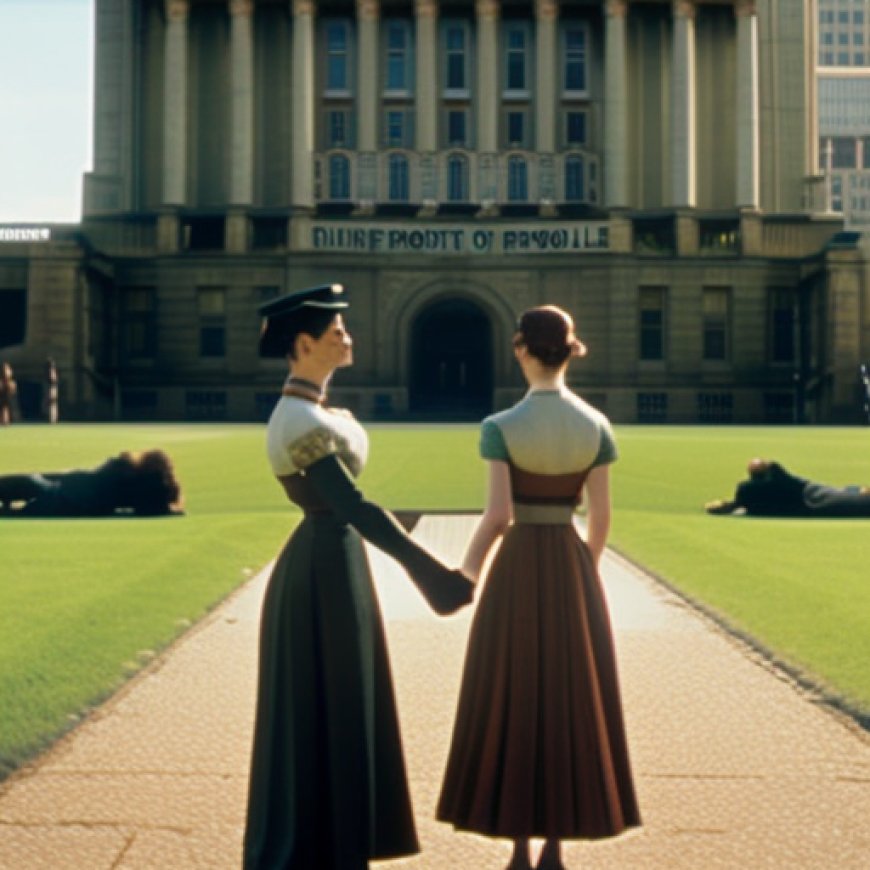University of the People: an education model worth emulating
University of the People: an education model worth emulating University World News


GLOBAL
![]()
The University of the People: An Education Model Worth Emulating
In a world fraught with conflicts, inequality, and socio-economic disparities, the idea that access to higher education is a fundamental right for all and that education promotes world peace and drives global economic advancement seems like a lofty ideal. This idea, however, forms the core belief of the University of the People (UoPeople), an innovative online institution.
At a time when the cost of traditional education is soaring, and access remains a distant dream for millions of people around the globe, UoPeople stands as a beacon of hope promoting peace through education.
UoPeople is the first non-profit, tuition-fee-free, American, accredited online university, and its mission is nothing short of revolutionary: to make quality higher education accessible to all, irrespective of financial, geographical, political or social constraints.
This commitment to inclusivity is deeply rooted in the belief that education can catalyse social change and global peace. As Kofi Annan, the former United Nations secretary general, said: “Education is, quite simply, peace-building by another name.”
I founded UoPeople in 2009, envisioning a world where all qualified high school graduates have access to higher education, creating a more peaceful world. UoPeople breaks down the barriers to higher education by providing a completely virtual education that utilises open-source resources, free online learning materials, and a network of volunteer instructors to deliver accredited degree programmes at an ultra-low cost.
Today, the university has grown to more than 137,000 students from over 200 countries, including more than 16,500 refugees and 3,000 Afghan women studying online from the safety of their homes.
UoPeople offers tuition-fee-free education to students worldwide. While students pay minimal fees for application processing and course assessments, the overall cost is up to 95% less than what traditional institutions cost in the United States. The university provides scholarships for those who cannot afford the modest fees.
Education for Peace
Education is central to peace-building and ending conflict, war, and aggression. Education appears in two of the 24 indicators in the Positive Peace Index produced by the Institute for Economics and Peace.
According to the index, “education can lead to peace and be a part of ‘building back better’ by supporting the transformation of the security situation, political institutions, economic regeneration, and social development”.
Moreover, it significantly contributes to nurturing a mindset that advocates the non-violent resolution of disputes.
A Transformative Impact
The impact of UoPeople on individual lives has been nothing short of transformative. The university has opened doors for countless individuals who might never have had the chance to pursue higher education otherwise.
Students from all walks of life, from refugee camps to under-served communities, have found solace and opportunity through UoPeople’s virtual community. These students now have the chance to realise their potential and, in doing so, to become global citizens who can shape a better, more peaceful world.
For example, Abdullah came to UoPeople at a significant turning point in his life. The devastating civil war in Syria had disrupted his formal education. His father, a doctor dedicated to the pro bono care of his neighbours and fellow citizens, died in front of his eyes. After hearing a nearby explosion, they ran to assist their neighbours; in the process, Abdullah’s father was hit by an artillery shell and killed.
Even after this devastating loss, Abdullah refused to give up his dream of continuing his education, but due to financial and practical constraints, he was unable to do so until he discovered UoPeople. Despite the difficulties of constant shelling, frequent power electrical outages, and an unstable internet, Abdullah dedicated himself to his studies. He has survived tremendous hardship yet was able to study at UoPeople in order to become a theoretical physicist.
Alleviating Poverty
It’s important to acknowledge that the impact of UoPeople extends far beyond the individual level. The university is a testament to the potential of online education to bridge geographical boundaries and promote global economic development.
By offering programmes in high-demand job fields, such as business, computer science, health science, and education, UoPeople is preparing a global workforce that is both diverse and well-educated. This workforce, in turn, has the potential to drive innovation and economic growth in communities worldwide, helping to alleviate poverty and promote prosperity.
Higher education has the potential to not only transform the lives of students but also those of their families, communities, nations, and, consequently, the world.
The University of the People’s belief that access to higher education is a basic right for all and that education promotes world peace and global economic development is a powerful and transformative vision.
UoPeople is committed to making higher education accessible, affordable, and of the highest quality and developing a scalable model to empower marginalised communities worldwide.
I hope that other institutions around the globe will emulate our innovative model to make higher education accessible to all who desire to transform their lives and help make the world a better place.
Shai Reshef is the president of the University of the People. He has been widely recognised for his work, including being named one of Fast Company’s 100 Most Creative People in Business; awarded an honorary doctorate from the Open University; and selected as a Top Global Thinker by Foreign Policy Magazine. Recently, he was awarded the 2023 Yidan Prize for Educational Development, the world’s highest education accolade, referred to as the ‘Nobel Prize of Education’. Reshef’s TED Talk and Nas Daily video about the university have over 30 million views combined.
If you are interested in reading more about how higher education institutions are contributing to tackling global challenges and achieving the UN Sustainable Development Goals, please visit the University World News SDGs Hub.

Join us, as fellow seekers of change, on a transformative journey at https://sdgtalks.ai/welcome, where you can become a member and actively contribute to shaping a brighter future.







